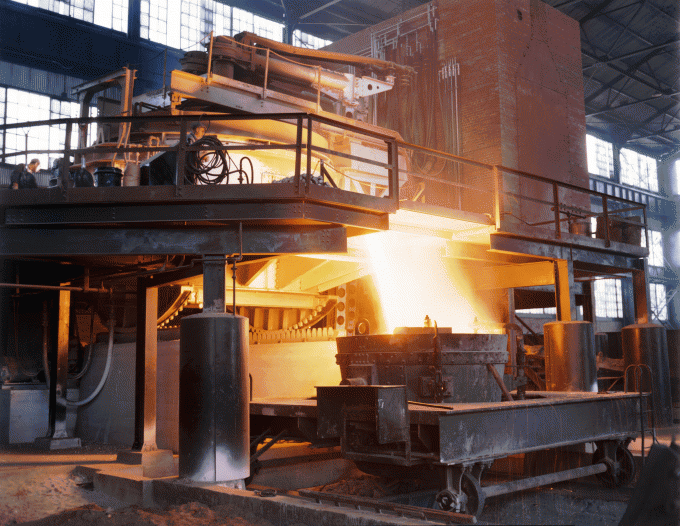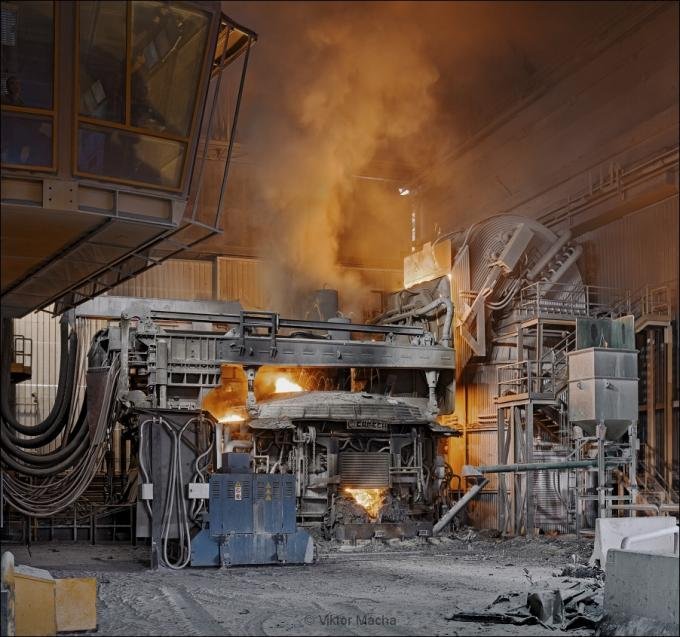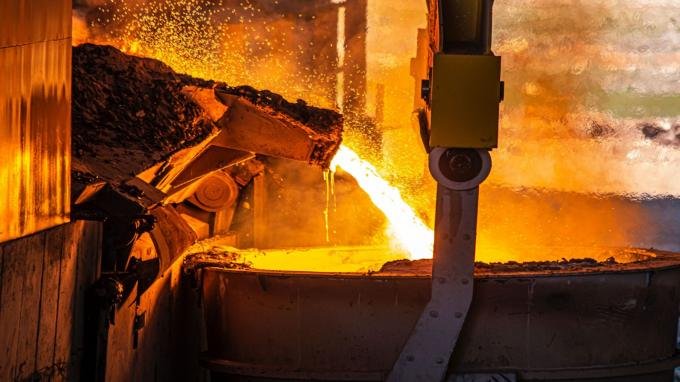

Product Details
Place of Origin: Hefei Anhui China
Brand Name: FeiChun™
Certification: International Electrical Commission (IEC) standards
Model Number: High Temperature Metallurgy Industrial Electrical Wire
Payment & Shipping Terms
Minimum Order Quantity: 1000 M
Price: 10-30 USD per meter, price varies according to specifications
Packaging Details: Cable Reels or Packaging Bags
Delivery Time: 15-30 Days
Payment Terms: T/T or Western Union
Supply Ability: 18,000 meters per week
Heat-Proof Electrical Power: |
Ensures Reliability In Hot Electrical Applications |
Hot Environment Endurance: |
Thrives In Challenging Hot Conditions |
Thermal Stability: |
Stable Performance In Varying Temperatures |
Heat-Proof Design: |
Designed To Resist High Temperatures |
Extreme Temperature Cable Performance: |
Exhibits Reliable Performance In Extreme Temperatures |
Extreme Thermal Stress Resistance: |
Resists Stress From Extreme Thermal Conditions |
Heat-Proof Power Conductors: |
Reliable Power Conduction In High-temperature Settings |
Thermally Robust Power Cables: |
Robust Design For Power Transmission In Extreme Heat |
Heat-Proof Electrical Power: |
Ensures Reliability In Hot Electrical Applications |
Hot Environment Endurance: |
Thrives In Challenging Hot Conditions |
Thermal Stability: |
Stable Performance In Varying Temperatures |
Heat-Proof Design: |
Designed To Resist High Temperatures |
Extreme Temperature Cable Performance: |
Exhibits Reliable Performance In Extreme Temperatures |
Extreme Thermal Stress Resistance: |
Resists Stress From Extreme Thermal Conditions |
Heat-Proof Power Conductors: |
Reliable Power Conduction In High-temperature Settings |
Thermally Robust Power Cables: |
Robust Design For Power Transmission In Extreme Heat |
When it comes to the metallurgy industry and other high temperature environments, standard wires simply can’t handle the heat.
In these extreme conditions, you need a solution that’s tough, heat-resistant, and long-lasting. That’s where Ceramic Coated High Temperature Metallurgy Industrial Electrical Wire steps in.
Ceramic-coated electrical wire is designed for the most challenging industrial applications, offering superior performance in high temperature environments, such as metalworking and industrial furnaces.

If you’re in search of a reliable, durable, and heat-resistant electrical conductor, this guide will help you explore everything you need to know about ceramic coated high temperature wire.
The key to the ceramic coated wire's success is its ability to withstand extreme temperatures, resist corrosion, and provide excellent electrical insulation.
Whether you're managing metallurgical processes, working with furnace elements, or operating high-heat machinery, ceramic-coated wire is built to last in these harsh conditions.
Unlike traditional wires, ceramic-coated conductors can operate in extremely high temperature environments, reaching and even exceeding 550°C.
This makes them ideal for use in industrial applications, such as furnaces, kilns, and other high-temp equipment.
| Wire Type | Max Operating Temperature | Common Application |
|---|---|---|
| Standard PVC Insulated Wire | 105°C | Household wiring |
| PTFE Fluoropolymer Wire | Up to 250°C | Aerospace, industrial machinery |
| Ceramic Coated High Temp Wire | 550°C & Above | Metallurgy, industrial furnaces |
In metallurgy and metalworking, the conditions can be tough. High heat, exposure to chemicals, and abrasive environments mean standard wires break down fast.
Ceramic-coated wires are designed with durability in mind, providing superior protection against both heat and corrosion.
This means fewer replacements and less downtime for your operations.
Ceramic coatings not only protect against heat, but also provide excellent electrical insulation.
For industries handling high voltage equipment, such as industrial furnaces and metal processing plants, it’s crucial to have custom high temperature wires that can handle large electrical loads safely. Ceramic-coated high voltage wires are the perfect solution for these scenarios.

Ceramic coated high temperature wires are engineered to handle continuous exposure to temperatures up to 550°C or higher. They maintain their structural integrity and performance in conditions that would degrade standard wires.
Many industries require custom ceramic coated wires designed for their specific needs. Whether it's modifying the wire for flexibility in tight spaces, increasing its high voltage capacity, or tailoring it to resist certain chemicals or abrasive conditions, ceramic-coated wires can be customized for a variety of uses.
| Customization Option | Benefits |
|---|---|
| High Voltage Ceramic Coating | Ideal for high power machinery in metallurgy industries |
| Flexible Ceramic Coating | Used in applications requiring tight bends or movement |
| Chemical-Resistant Ceramic Coating | Protects against harsh chemicals in industrial processes |
In environments where exposure to corrosive materials or abrasive particles is common, ceramic-coated high temperature wires provide added protection, reducing wear and tear over time.
This is crucial for industries like metalworking, where reliability and longevity are key factors in operational success.
Now that we’ve covered the technical details, let’s look at some of the real-world applications where ceramic coated high temp wire is indispensable.
In the metallurgy industry, temperatures regularly soar above 550°C, especially in furnaces and heat-treatment processes. Standard wires simply can’t withstand these temperatures.
Ceramic-coated electrical wires are specifically designed to perform reliably in such high-temp environments. They ensure smooth operation in metal processing, smelting, and heat treatment equipment.
| Metallurgy Applications | Key Benefits of Ceramic Coated Wire |
|---|---|
| Industrial Furnaces | Withstands continuous high temperature exposure |
| Metal Processing Plants | Durable in abrasive, high-heat environments |
| Heat Treatment Facilities | Provides reliable insulation in fluctuating heat levels |
Industrial furnaces and ovens require electrical wires that can endure extreme temperatures without losing conductivity or breaking down. Ceramic-coated wires are ideal for furnace elements and control systems, ensuring that power continues to flow even in the hottest environments.
Both the aerospace and automotive industries have increasingly turned to ceramic coated wires for systems exposed to high temperatures.
From rocket engines to high-performance automotive exhaust systems, heat-resistant ceramic coated wires play a critical role in ensuring safety and performance.
| Aerospace & Automotive Applications | Why Ceramic Coated Wires Are Used |
|---|---|
| Rocket Propulsion Systems | High heat resistance ensures reliability |
| High-Performance Automotive Exhausts | Protects against extreme heat and chemical exposure |
In the oil and gas industry, electrical equipment often operates in high temperature environments, sometimes coupled with exposure to corrosive chemicals.
Ceramic coated wires provide a robust solution, ensuring that wiring doesn’t degrade, crack, or lose performance when exposed to these challenging conditions.

Not all industries have the same needs, and that’s why many manufacturers offer custom high temperature ceramic coated wires tailored to your specific application.
Whether you need high voltage ceramic coated wires or flexible ceramic coated wires, the possibilities are endless when it comes to customizing your heat resistant industrial wires.
| Customization | Description |
|---|---|
| Flexible Ceramic Coating | Designed for applications where wires need to bend or flex |
| High Voltage Ceramic Coating | Specifically made for high power electrical systems in metallurgy |
| Chemical-Resistant Coating | Ideal for environments with high exposure to corrosive chemicals |
Choosing the right ceramic-coated high temperature wire depends on several factors, including:
Temperature requirements: What’s the maximum operating temperature?
Voltage load: Are you working with high voltage systems?
Environmental exposure: Will the wire be exposed to chemicals, abrasion, or other harsh conditions?
Flexibility needs: Do you need the wire to be flexible or capable of handling tight spaces?
Here’s a quick guide to help you make the right choice:
| Key Factor | Ceramic Coated Wire Solution |
|---|---|
| High Temperature (550°C & above) | Standard ceramic coated wire |
| High Voltage Applications | Custom high voltage ceramic coated wire |
| Chemical or Abrasion Resistance | Ceramic coating with additional chemical resistance |
| Need for Flexibility | Flexible ceramic coated wire |
There are many suppliers specializing in ceramic coated high temperature wire. Be sure to check their customization options to ensure that the wire meets your specific furnace requirements.
For metalworking applications, you’ll want a wire that can handle both high temperatures and abrasive environments. Look for wires with flexible ceramic coatings to accommodate the movement and vibration common in these settings.
The main difference lies in the insulation material used, the voltage rating, and whether or not the wire is flexible. Some ceramic coated wires are better suited for high voltage applications, while others are designed to be flexible or offer superior chemical resistance.



Note: This is just part of the standard parameters of our products. Please contact our Engineer if you need more. And the information contained within this webpage is for guidance only and is subject to change without notice or liability. All dimensions and specifications are nominal and are subject to normal manufacturing tolerances. All pictures shown are for illustration purposes only. The actual product may vary. All the information is provided in good faith and is believed to be correct at the time of publication.